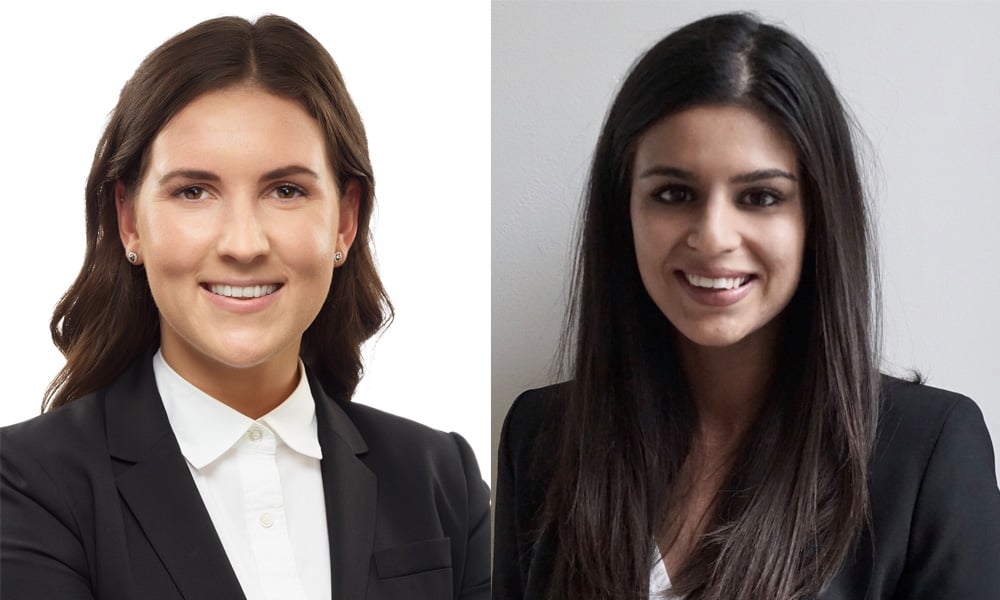
The Law Students' Society of Ontario is seeking greater collaboration with the LSO

The Law Society of Ontario will consider two motions brought by members, as well as the Law Students’ Society of Ontario, aimed at increasing student involvement with the LSO.
The motions propose that licensing candidates be permitted to vote in bencher elections and call for the creation of a law-student position on a Convocation committee that deals with recruitment, licensing and other issues impacting law students.
The LSSO advisory committee, with support from Law Society members, initially brought the motions for discussion at the LSO’s annual general meeting, on August 10. But given this year’s online format, the Law Society decided it would be difficult to facilitate the debate and detailed presentation and discussion necessary, as well as to determine quorum. The motion signatories and the LSSO advisory board met with LSO treasurer Teresa Donnelly to determine a more effective alternative. The motions were then withdrawn, based on an agreement they would be considered by the LSO’s priority planning committee, which will report to Convocation by February 2021.
To include law students and articling students in an institution which directly affects their careers is a matter of good governance for the LSO, says Morgan Watkins, the outgoing president of the University of Toronto Students’ Law Society and a member of the LSSO Advisory Board.
“Articling students are subject to all the same rules as lawyers. So it's taxation without representation, but it's also the fact that the decisions made by the Law Society impact articling students who work in law firms just as much as they impact lawyers,” says Watkins.
While students are governed by LSO rules and must pay LSO-mandated fees, available channels for formal input are limited, said the LSSO in a statement to Law Times. Before tax, articling students pay the LSO $2800 to article, $1,500 to take the barrister and solicitor licensing exams and $160 to be called to the bar.
Ontario would not be the first to welcome students into the regulator’s operations. The Law Society of Manitoba has a bencher position reserved for an articling student elected by fellow students, who also has a seat on two committees concerning admission and education. Alberta’s law society have two committees featuring a student representative.
The LSSO is the representative body for all law students in the province, composed of elected executive members and a Council on which student government leaders from each Ontario law school hold ex officio positions.
Another reason articling students should have a representative with the law society, is that while law students are represented by their student councils and the LSSO and lawyers are represented by the LSO, articling students lack a representative body, says Karen Mann, the outgoing president of the LSSO and a member of the LSSO Advisory Board.
“If we think about the last bencher election, everyone who was a licensing candidate at that time and are now licensees and are governed by those benchers, they didn’t get any say,” says Mann.
The LSSO’s statement also notes that a 2018 report from the LSO governance task force found that appointing non-licensees, including law students and licensing candidates, to standing committees of Convocation would improve governance. During the task force’s consultations, the LSSO asked that a bencher position be reserved for a student at Convocation, but the issue was not addressed in the task force’s three reports in 2018 and 2019, said the statement.
Mann and Watkins say the initiative to bring motions before the law society and enhance law student involvement was aided by the momentum created by the collaboration between the LSO and the LSSO to respond to COVID-19. The LSSO and LSO coordinated to make changes to the recruitment process and licensing exams. On-campus-interviews were moved from the fall to the winter semester and the licensing exams shifted to an online format.
“The goal is to have a collaborative relationship and just enhance governance and make it the best it can be for licensees and for licensing candidates,” says Watkins.